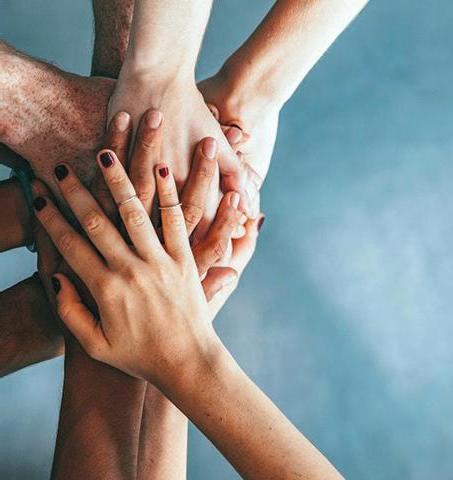
4 minute read
Lead Jewish producer Jeffrey
At the Hebrew Center for Health and Rehabilitation, we understand that comfort and familiarity is a key part of the journey to wellness. We also understand that maintaining your religious beliefs and principles is fundamental in continued enrichment of life.
Our Kosher meal services allow residents to maintain their dietary requirements throughout their stay with us. At the Hebrew Center, we ensure we follow all principles of Kosher including purchase, storage, preparation, and service.
At the Hebrew Center for Health and Rehabilitation, we also offer a variety of other services and amenities to ensure your stay is as comfortable as possible.
THESE SERVICES INCLUDE: • Passport to Rehabilitation
Program • Long-Term Skilled
Nursing Care • Specialized Memory Care • Respite Care Program • Palliative Care and
Hospice Services Coordination
H K C כשר
OUR AMENITIES INCLUDE:
• Barber/Beauty Shop • Café • Cultural Menus • Laundry and housekeeping services • Patient and
Family education • Life Enrichment
For more information on our Kosher program, please contact: DIRECTOR, PASTORAL SERVICES - (860) 523-3800 Hebrew Center for Health and Rehabilitation One Abrahms Boulevard, West Hartford, CT 06117



LIKE US ON
CONTINUED FROM PAGE 5
includes former President Bill Clinton, former British Prime Minister Tony Blair, Holocaust historian Deborah Lipstadt, and journalists Fareed Zakaria, George Will and Yair Rosenberg of Tablet.
“Antisemitism is a conspiracy theory,” Lipstadt says of the penchant for antisemites to blame Jews for just about everything based on “the notion that there are forces more powerful than you.”
Based on his own experiences as a former white supremacist, Arno Michael agrees.
“If I’m looking to recruit, I’m going to look for white kids who have something going wrong in their life … and find a way to blame that on the Jews,” he says in the documentary.
But after 90 minutes of examination, one is left with the sense that the film has but skimmed the surface of a bottomless black hole.
Goldberg, 52, has pursued the subject of prejudice throughout his career, from his Emmy-winning “A Yiddish World Remembered” in 2002 to a well-received documentary about the Armenian genocide. He also wrote, produced and directed “Antisemitism in the 21st Century: The Resurgence,” which covered the history of antisemitism in Europe. It aired on PBS in 2017.
In the British segment of “Viral,” Goldberg visits Paul Marmot, an English cousin whom he had never met. Marnot recounts how, after a lifetime as a leftist British Jew, he tore up his Labour Party membership card when Corbyn was chosen as its leader in 2015. Critiques of Israeli policy are acceptable, he says, but Corbyn enabled criticism that crossed over into anti-Jewish sentiment.
Meanwhile, on our shores, Goldberg takes note of how antisemitism in the U.S. has been getting worse over the past dozen years. By the time 11 Jews were gunned down in October 2018 in a synagogue in Pittsburgh, this film project was already underway. In his view, anti-Jewish sentiment in the non-Jewish world is always “only a couple of centimeters below the surface” at any given time, though social forces may push it down.
“The biggest mute button on antisemitism was the Holocaust itself,” he said, adding that it led to “better behavior” toward Jews in most of the Western world for more than 50 years. “And the precursor [to those prejudices surfacing] is societies becoming more polarized.” Another factor, he said, is that fewer Holocaust survivors are around to give firsthand testimony about how unchecked antisemitism branches off into utter horror.
In the France portion of “Viral,” Goldberg interviews a brother of the shooter in the 2015 assault on the Hyper Cacher kosher grocery in Paris. Asked to describe the motivations of his jihadist brother, Abdel Ghani Merah describes the North African immigrant milieu of their parents, who brought to France a post-colonial belief that Western nations, Israel and global Jewry were allied against the Arab world.
“Hatred of Jews was legitimate in my parents’ eyes,” he says, while distancing himself from that view (in fact, he has committed his life to countering antisemitism). “If they failed at something or were rejected, right away it was somehow a Jew’s fault. They owned the world.”
A final word is given to the Valerie Braham, widow of Philippe Braham, one of four French Jews killed in the attack on Hyper Cacher, a kosher supermarket in Paris.
“We don’t walk in the streets easily like we used to,” she says. “I won’t let my sons wear the kippah. I won’t say their names out loud.”
For those who see it, will this film provide some kind of vaccine, so to speak, against antisemitism?
That is the perennial hope – the panacea we are all waiting for.
Your only resource to reach the Jewish market in Connecticut and Western and Central Massachusetts. Call 860.231.2424 jewishledger.com
Friday, November 22, 2019 24 Cheshvan 5780 Vol. 91 | No. 47 | ©2019 $1.00 | jewishledger.com






